#soundly punished for his sins the poor man
Text
do you think Keynes ever lies awake at night thinking about how he was worried Iskierka might hatch "a timid beast"
#dottie rambles#temeraire#he called her a 'blessed creature' too#i admit that i laughed.#she's a month old at the beginning of empire of ivory and granby is already regretting some life choices#'will you hold still for all love' granby said despairingly#soundly punished for his sins the poor man#(i adore iskierka to be clear)
67 notes
·
View notes
Text
Dollhouse full series review
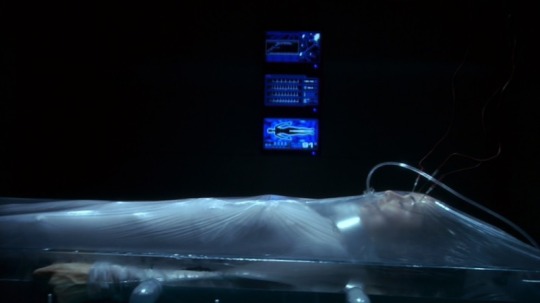
How many episodes pass the Bechdel test?
96.15% (twenty-five of twenty-six).
What is the average percentage of female characters with names and lines for the full series?
45.89%
How many episodes have a cast that is at least 40% female?
Twenty.
How many episodes have a cast that is at least 50% female?
Twelve.
How many episodes have a cast that is less than 20% female?
Zero.
Positive Content Status:
Very poor - this is exactly why we don’t just rely on passing the Bechdel and having a large number of female characters in the cast as ‘guarantees’ that we’re watching feminist content. If all those female characters exist to be punished, objectified, and abused by the story’s creator as an expression of his misogynistic rage, that is not a good thing (average rating of 2.76).
Which season had the best representation statistics overall?
They’re about the same, really. The one Bechdel fail was in the first season, but season two had less female character presence overall, but it was also more balanced insofar as it scored more episodes with 40% or more on the cast. Both scored equally badly on content quality, though my feeling is that perhaps season one’s sins were the worse of the two. On the other hand, season one had more guest female characters AND it used its supporting female cast more prominently, whereas season two was more male-heavy not just in numbers but in screen time and narrative attention. At the end of the day, I’m not sure it matters which you consider to be worse.
Which season had the worst representation statistics overall?
See above. I cannot recommend this show for feminist content.
Overall Series Quality:
For a first-time viewer, there’s probably still solid potential for enjoyment, and at least some of the twists should be genuinely enjoyable. The majority of the cast is very excellent, and the idea of the show is compelling. However, the quality of the series as it turned out is negligible, full of flash and little substance, the bad apples in the cast spoil the batch while the good grapple with bad writing and the woeful underuse of their skills, and the whole thing remains far better as a thought than it is in execution. And then there’s the misogynistic rage thing. That’s a problem that really messes with the overall product, to put it lightly.
MORE INFO (and potential spoilers) under the cut:
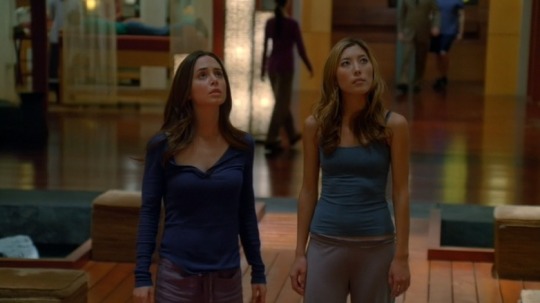
For the record: I believe, sincerely and completely, that Joss Whedon hates women. Not that he doesn’t know how to relate to them or he misses ‘the old days’ or any other such placid disdain; I think he deeply and violently hates women, and I think the evidence is written all up and down his work - all of his work, but perhaps never more clearly than in this show. He can claim to be a feminist all he wants, he can put women at the forefront of his shows and talk big game about what he believes they’re capable of, but so long as the women in his stories continue to be mistreated at every turn, beaten, raped, and constantly belittled and devalued within the text, I will not be convinced that the man doesn’t resent the Hell out of women for existing - and particularly, for existing with potential for sexuality. The misogyny of the Whedonverse is rampant, unchecked, often participated in by his ‘heroes’ as much as his villains, and treated as largely incidental, rarely acknowledged and even then, gleefully delivered as ‘just the way things are’. Characters might shake their heads about how that’s unfortunate (and Whedon pats himself on the back for making such an insightful feminist statement), but the verbal denouncement doesn’t detract from the indulgent inclusion of that misogyny, the platform provided for it to roam uninhibited, and be showcased and vicariously enjoyed. For someone who claims to be a feminist, Whedon sure does seem to be fetishistically obsessed with making women suffer, and when I compare the content of his work to that of the other creators whose shows have appeared on this blog, the result is most unflattering.

As easy as it would be to while away this post explicating the details of Whedon’s reprehensible worldview, however, I shall refrain; for one, it would be boring as Hell, it’s not a complicated reality and the truth really is in the pudding for all to see, you don’t need me for that, and for two: I already promised to at last talk about the characters and their arcs (such as they are), since that is one subject I often neglected in the posts on this show, and arguably the only subject upon which the show could hang any virtues. Naturally, we will begin at the beginning, with the much-maligned lead character: Echo.
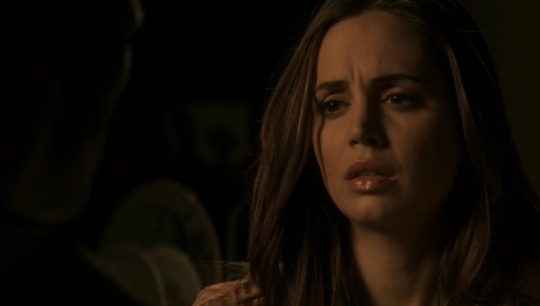
Eliza Dushku is not a terrible actor. But her range is pretty limited, she plays variations on the same archetype almost exclusively, and that’s a terrible fit for a show where the central caveat is supposed to be that she can take on any personality and be a complete and whole different person week by week. No one should ever expect to be able to float that idea with a lead who is so very obviously not up to the task, and while I don’t think she’s responsible for the failure of the show (all of its other flaws would have soundly sunk it even if Dushku was a crown jewel of talent), it certainly does not help that she’s easily the blandest and least compelling player in the whole sorry mess. It’s a cringe every time she utters some silly line about how powerful and badass she is, because there’s nothing convincing about it, and if the creative team really believed (and believed their audience would believe) that Echo is THAT great, they wouldn’t feel the need to have her showily declare it. When season two hits and Echo’s ‘character development’ fast-tracks to full sentience, she becomes even less dynamic: all of the things which could have provided legitimate engagement with the character’s struggle are skipped over, her process of self-actualisation (anyone who read my Farscape reviews knows my love for hard self-actualisation narratives), her navigation of her role as a developing entity in a world hostile to such things (touched on occasionally in season one, thrown to the wind in season two), anything to do with her cognitive evolution is scrapped in favour of ‘she just remembers it all now’, and there’s no arc to it. I invoked the concept of the Mary Sue in one episode post, and that is exactly the problem we end up with: a ‘perfect’ character who can do everything and anything and be ~the best~ at it, who is beloved and desired by all who meet her, except for her (mustache-twirling cliche villain) enemies, who fear her awesome powers. There is no personality in Echo, no conflict, no meaning. Wild as it may sound, you could actually remove her from the show completely and easily adapt the other characters (the ones who have personality, conflict, and meaning) to fill the space, and not only would it work, but the show would be infinitely the better for it. That’s the absolute opposite of what you want from a lead character.
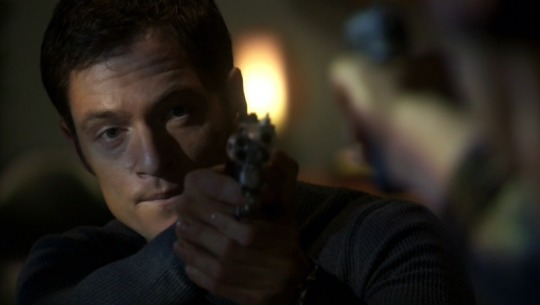
The other BIG mistake in the casting for this show is Tahmoh Penikett as Paul Ballard, who plays his part with all the verve and charisma of a piece of wood with eyes drawn on (ever watch Ed, Edd, and Eddy? Plank has more dynamic personality than our boy Ballard). I’m not sure how much of it is Penikett’s fault - it has been many years since I watched Battlestar Galactica, and while I don’t remember being particular impressed by him, I don’t remember being frustrated by his inability to walk in a straight line without making it look weird, either - but whether he’s handicapped by his own acting non-prowess or not, he’s certainly fighting a losing battle with an unfocused mess of a character, and if the writing couldn’t decide what Ballard’s deal was to start with, I’m not shocked that Penikett had a hard time conveying it. Is Ballard a morally righteous hero (on a show with no moral centre for him to relate to)? Is he flawed and secretly-dark, and if he is, who recognises that, is it deliberate? Is he losing control, or is that just supposed to be ‘normal person’ behaviour? Again, who notices, does he know? How much of his interiority is a white-knight cliche, and how much is supposed to be genuine, and is any of it supposed to be subversive? I honestly can’t tell, one episode from the next. In season one, he’s garbage at his job, and some characters mention it, but then Ballard himself appears to be under the impression that he’s fighting the good fight and the tone of the show seems to agree with him rather than acknowledging his self-delusion. In season two, he joins the Dollhouse at the same time as openly declaring himself to be still against it, the plot conveniently pretends he never raped Mellie so that we can uphold the idea that he IS righteous, after all, and has no dark impulses, other characters at the Dollhouse put up with him being an obvious liability for no discernible reason, and then eventually he gets rendered brain-dead, reconstructed as a doll version of himself, and then dies a few episodes later anyway. Big whoop. It feels an awful lot like they had no long-term plan for what to do with the character, so they just focused on giving him a romance with Echo and then threw some contrived death stuff on top of that for flavour. Speaking of the romance thing: eek. Again, in season one it seemed they couldn’t decide whether or not his mounting obsession with his damsel-in-distress vision of Caroline was creepy as Hell (pro tip: it absolutely was), but then in season two it all became very simple: Ballard wants Echo, but doesn’t really believe she’s a real person (for some reason this is not a deal-breaker to her), and they dance around each other for a bit but never get together and somehow we’re supposed to interpret this as the development of a wonderful love story with a bittersweet tragic end when he dies, twice but also not really because then she downloads him into her brain anyway so they live happily ever after, sort of. It’s a fucking mess, y’all, and they don’t earn it, and the utter soup that is Ballard’s personality and motivation goes un-examined. The fact that season two tips heavily in favour of Echo/Ballard scenes is something very significantly to its detriment, because it’s the worst and most shakily-developed non-relationship of the series. Ok, that, and whatever the fuck Topher/Bennett was supposed to be.
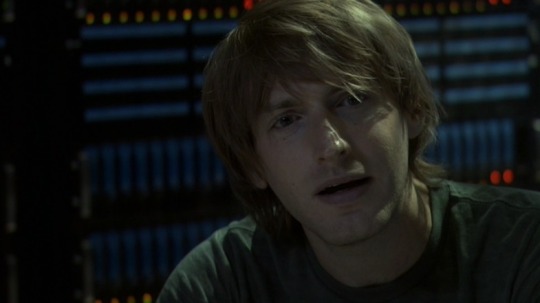
Speaking of Topher...actually, I don’t have much to say about him. Breaking pattern with the rest of the characters, Topher shows no real sign of a personal story in season one, so it’s season two which attempts to give him some function as an individual outside of being the comic-relief tech guy. It’s not particularly successful, since the attempted character development revolves around 1) moral compunctions (which, as noted ad nauseum, this show left itself incapable of engaging with in any meaningful way back when it pretended sexual slavery was a morally grey issue), and 2) throwing a love interest at him: zero actual relationship-building ensues and it’s awkward and chemistry free and then she dies (so glad Bennett could exist to tick off a bunch of Whedon’s favourite suffering-woman tropes and then die for shock value, yay). At the end of the day, Topher was just a handful of affectations, fun to watch, but hardly amounting to more of a ‘whole person’ than the paper-thin personalities of the sex-fantasy cliches he imprinted into the dolls.

If Topher is the character who suffers most from a lack of development in season one, Boyd is the hardest hit in season two, easily. As Echo’s handler in season one, Boyd was pleasant, mild-mannered, protective, and he had an ethos which governed his choices (imagine such a thing!). His former career as a cop was referenced variously, and it seemed clear that we should expect one day to learn how he came to leave the force and wind up as a bodyguard working for a secret organisation. Season two? Forget about it. Forget about it because of the idiotic ‘twist’ that turned Boyd into Rossum’s cuckoo founder and thereby unraveled his entire personality as a sham in one fell swoop, obviously, but forget about his character having even the appearance of development in the meantime, also. Removing Boyd from his position as Echo’s handler was a grave error, as it downgraded his importance and effectively stifled the natural bond he had developed with his charge which represented a nice, uncomplicated character dynamic (one far more welcome than that clusterfuck replacement which was Ballard as Echo’s handler, euch). Additionally, this led to Boyd being largely backgrounded for the entirety of season two, given no meaningful stories to engage with, and certainly not expanded upon or explored as a character. As noted, any such expansion would have been irrelevant anyway once the dumbass ‘big reveal’ happened, but that’s all the more reason to bemoan the loss of Boyd’s character, which essentially occurred a full season before he actually donned his suicide vest and exploded in the Rossum building. If you have to dump a character just to service your twist, don’t. Dump the twist instead. Like pretty much every other actor on this show, Harry Lennix deserved better.
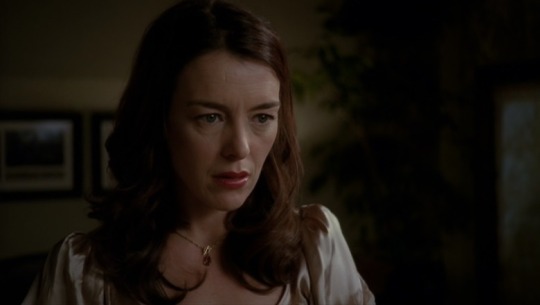
And then there’s DeWitt...I largely covered the DeWitt issue back in the episode posts, really; she starts out an intriguing character (and I credit Olivia Williams with much of this, she created dynamism out of an oft-lacking script, in every case), but season two really did a number on her when it came to leaping wildly about different plot ideas that jerked DeWitt’s characterisation from one extreme to another with very little connective tissue to sell the change. If Ballard was the character whom the narrative couldn’t decide how to handle in season one, DeWitt takes up that odious mantle in season two; is she losing her grasp? Is she playing the game? Is she an evil, pragmatic genius? Is she foolish and deluded by an idealism that plainly has no basis in reality? Is she an alcoholic who spontaneously gets her shit together after a couple of other characters tell her off? Damn, that was easy. As with Ballard, the problem is not just that the story seems to change tone and purpose for DeWitt’s character from one episode to the next; it also robs her of the opportunity to be defined through consistent interaction with others - she has no one to bounce off in a manner which would create a baseline for her behaviour and how it is outwardly perceived (and thus, how the audience is intended to interpret it).
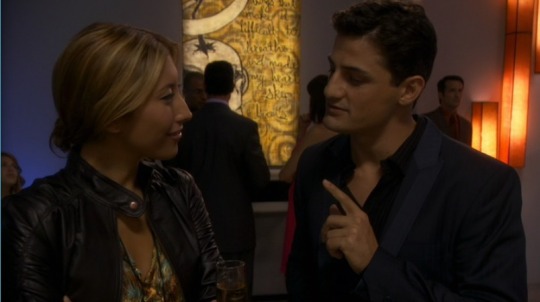
I’m gonna talk about Sierra and Victor together, because frankly, that’s both the way the show packages them, and there’s not much to say outside of it. For the millionth time ever on this blog, I will complain that all shows ever would be improved by being ensembles; in this case, Sierra and Victor both would have benefited from a framework which allowed either one of them to take greater precedence more often, instead of having their own narratives distilled down to a single Personal Episode each in season two. I do enjoy both, and their relationship has legitimate chemistry and charm while also following a sensible plot concept through - the idea that strong emotional connections and bonds can transcend the mind wipe. Unfortunately, the show has little functional purpose for either character outside of their relationship, to the extent that it even sidelines them almost entirely in the climax of the series (pre-flashforward). Victor/Anthony is given the least plot purpose in the show proper, which is just a criminal misuse of Enver Gjokaj - Anthony is a soldier and that’s essentially his entire personality right there, and the only thing that gives them an excuse to make him do Manly Fighter Stuff in the latter stages of season two. Sierra/Priya gets more to do, but the bad news is, it’s all about being raped, and that’s her whole story - horrible possessive misogynists abusing her so that she can embody Whedon’s favourite Broken Bird trope, with the added misfortune of changing the nature of her relationship with Victor to make it a little bit about him ‘rescuing’ her with the love of a good man. Both of these actors are so good, and their characters had such potential, I can’t believe the show fucked around and wasted them like it did.
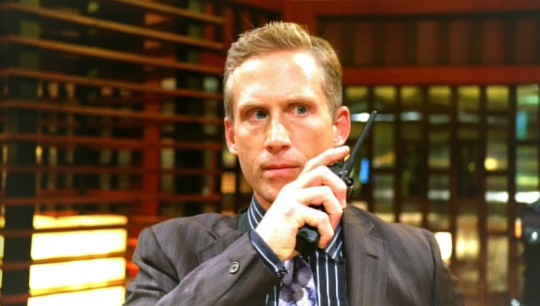
Ok, one more before I go. I know he was never a member of the central cast, but we gotta talk about Laurence Dominic, because he was deceptively essential to the show, important to what made it work for the brief time when it could be said to work, and he was altogether the best character on the show insofar as he was the most cohesive, consistent, and logical player in the piece. I said as much when he made his welcome return in ‘The Attic’ (the best episode of season two...coincidence?), and as I noted then, it may be that Dominic’s early exit from the show was to his benefit in that he avoided being jostled across season two having all semblance of coherence torn to pieces along the way. I’m fairly certain the writer’s had no idea how valuable Dominic was to the story when they axed him (not least because they clearly had no idea how important it is to create some kind of moral framework to support a story that is inherently morally dubious), but consider the most obvious changes to the show format and the other character’s stories once Dominic was out of the picture: Boyd takes over as Head of Security, to his detriment as a character, and to the detriment of his relationship with Echo, leaving her wasting time with that dolt Ballard instead and putting audiences everywhere to sleep. And DeWitt? DeWitt loses her sounding board, the right-hand man who - for most of the first season - anchored her character by giving her someone to talk and plot and, at times, disagree with, creating that behavioural baseline that she lacked when she was being dragged all over season two. Dominic’s role was a structural pillar on the show, he held the roof up so that the rest of the characters could interact and interrelate - with each other, and with him - he had distinct relationship dynamics with pretty much all of them - and he was exactly the kind of character that you want around being a stable, unobtrusive presence. They could even have kept the idea of him being an NSA spy, just keep him working undercover, the audience knows the truth but the other characters don’t, it creates tension! Sure, it’d probably mean letting Ivy be sent to the attic under false charges, and that wouldn’t help this show’s abysmal abuse-of-women record, but considering the show did nothing of consequence with Ivy in the end anyway and she just existed to be belittled by Topher while he sent her to fetch him snacks...yeah, anyway. I could talk a lot about why Dominic was the best character on this stinking show, but it’s ultimately beside the point: the point is that nothing in this show really worked, and that had a lot to do with major conceptual issues (moral grounding is not optional! Misogyny is not tasty plot flavouring! Joss Whedon is an abomination!), and keeping Dominic around long-term would no more save the show than if Eliza Dushku possessed a modicum of acting range. It’s frustrating because there are so many good pieces there, excellent actors, intriguing character set-ups, fantastic plot possibilities, and heady existential implications. It’s just that some moron decided the best thing to do with that would be to play nasty sexual wish-fulfillment games and leave the rest to rot. I’m pretty sure the version of this show I enjoyed once was largely the version I made in my head, because the reality is a wasteful disaster. And misogynistic as Hell, too. We, the viewers, deserved better.

4 notes
·
View notes
Text
Is Lot Saved or Lost?
Now just suppose for a moment, for the sake of a discussion, we were asked to evaluate Lot’s life. And all that we had to judge him with were what the Genesis (Chapters 11-19) passages tell us. as we read these passages, Lot does not fare so well. The evidence is very heavy against him. He was supposed to be a covering to others, but his best days only came when he was under the covering of others. First, under his grandfather, Terah, he leaves the Ur of the Chaldees. He responded to and benefitted from his grandfather’s counsel. Next, after Terah dies, Lot comes under the influence of his uncle, Abram. They head off to Canaan, take a side trip to Egypt, and then, back again to Canaan. But Lot does not have the fortitude to stop Abram from going to Egypt. He just follows along.
Then, the people working under him cause trouble. There was strife between Abram’s crew and his own. This strife leads to a separation from his mentor. When Lot must stand on his own, he makes selfish choices. He doesn’t defer to his uncle, who allows Lot first choice of dwelling place. Lot chose the well-watered plain near Sodom and Gomorrah. He does not realize that soon it would be a burned-out desert. At this point, Lot is a shepherd. He makes his living from his animals. He lived in tents. And he was highly mobile. He heads towards Sodom:
Genesis 13:8–11
Then Abram said to Lot, “Let there be no strife between you and me, and between your herdsmen and my herdsmen, for we are kinsmen. Is not the whole land before you? Separate yourself from me. If you take the left hand, then I will go to the right, or if you take the right hand, then I will go to the left.” And Lot lifted up his eyes and saw that the Jordan Valley was well watered everywhere like the garden of the Lord, like the land of Egypt, in the direction of Zoar. (This was before the Lord destroyed Sodom and Gomorrah.) So, Lot chose for himself all the Jordan Valley, and Lot journeyed east. Thus, they separated from each other.
It is interesting that Abram acquired the maid Hagar in Egypt. She becomes a thorn in Abram’s side. But Lot got a sense of the land and it shows later in his choices. He liked Sodom, it was like the garden of the Lord, and the land of Egypt. Lot’s time in Egypt had made a deep impression on him. “So, Lot chose for himself all the Jordan Valley, and Lot journeyed east.” Lot chose for himself. Abram let God choose for him.
Somewhere along the line, while Abram is drawing close to the Lord, Lot moves closer and closer to Sodom. He gets caught in the cultural tribal fighting that was so common in that time. And another interesting thing happens. Lot gets taken captive along with Sodom, he and his family become a part of the bounty in the seasonal fighting. Lot is set free by Abram but immediately heads back to Sodom. The King of Sodom makes similar overtures to Abram as well but is soundly rejected:
Genesis 14:17–24
After his (Abram’s) return from the defeat of Chedorlaomer and the kings who were with him, the king of Sodom went out to meet him ... And Melchizedek king of Salem brought out bread and wine. (He was priest of God Most High.) And he blessed him and said, “Blessed be Abram by God Most High, Possessor of heaven and earth; and blessed be God Most High, who has delivered your enemies into your hand!” And Abram gave him a tenth of everything. And the king of Sodom said to Abram, “Give me the persons, but take the goods for yourself.” But Abram said to the king of Sodom, “I have lifted my hand to the Lord, God Most High, Possessor of heaven and earth, that I would not take a thread or a sandal strap or anything that is yours, lest you should say, ‘I have made Abram rich.’ I will take nothing...”
After being rescued by Abram and his men, Lot still chooses Sodom and the King of Sodom. The king of Sodom came to Abram to reward him and initiate a similar alliance with Abram as he had with Lot. But Abram rebuffs him and chooses Melchizedek and the blessing of God instead. Notice the only one who gets a blessing here is Abram. Not Lot, not the king of Sodom. The whole situation comes to a head in Genesis 18 and 19. God executes judgment upon Sodom and Gomorrah. Here again Lot makes poor choices. He is laughed at by future sons-in-law and must be dragged out of the city by angels. He loses his wife, as she is turned into a pillar of salt. And soon he is engaged in incest with his two daughters to conceive children. Peter has this summary:
2 Peter 2:6–10
And turning the cities of Sodom and Gomorrah into ashes condemned them with an overthrow, making them an ensample unto those that after should live ungodly; And delivered just Lot, vexed with the filthy conversation of the wicked: (For that righteous man dwelling among them, in seeing and hearing, vexed his righteous soul from day to day with their unlawful deeds;) The Lord knoweth how to deliver the godly out of temptations, and to reserve the unjust unto the day of judgment to be punished: But chiefly them that walk after the flesh in the lust of uncleanness, and despise government. Presumptuous are they, self-willed, they are not afraid to speak evil of dignities.
So, even with a horrible track record, with no moral or spiritual victories, God calls Lot three things: “just, righteous, and godly.” Despite the evidence to the contrary, he is delivered by God’s angels from the judgment upon the place he is living. Is Lot saved? He is. He is called righteous by God. How and why? The same way his uncle was:
Genesis 15:6
And he believed the Lord, and he counted it to him as righteousness.
If we were to evaluate Lot’s life by what we see and hear of him, we would never come to such a conclusion. We would never see him as a child of God. But we do not know what God alone knows. So, we should be very careful in our judgments and thinking:
2 Timothy 2:19
But God’s firm foundation stands, bearing this seal: “The Lord knows those who are his,” and, “Let everyone who names the name of the Lord depart from iniquity.”
Lord Jesus, we are very thankful for this gift of 100% righteousness before you. Without it, even the very best of us would fail under the microscope of your absolute justice. One sin is enough to disqualify us forever. Thank you for your firm foundation. Help us to move away from all iniquity and sin in our lives. Help us to be so grateful for your gifts in our lives, that we will forsake all but you. Amen!!!
0 notes